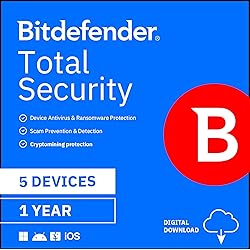The Role of Antivirus in Workplace Security: Safeguarding Your Digital Assets
Antivirus in workplace security is essential for protecting sensitive business data, ensuring business continuity, and guarding against ever-evolving cyber threats. As cybercrime continues to escalate, small businesses, remote professionals, and organizations of all sizes must understand the critical value that antivirus solutions bring to the modern workplace.
Why Antivirus Solutions Matter for Workplace Security
As businesses increasingly rely on digital systems, they become prime targets for malware, ransomware, phishing, and other malicious cyber activities. Antivirus software provides an indispensable first line of defense, both for individual employee endpoints and the organization as a whole.
The Growing Threat Landscape
Malware, including viruses, worms, Trojans, and ransomware, can cripple business operations, cause data breaches, and result in significant financial, legal, and reputational damage. With remote work and BYOD (Bring Your Own Device) policies on the rise, endpoints are more vulnerable than ever. In this context, deploying robust antivirus solutions becomes a non-negotiable part of any effective workplace security strategy.
Core Functions of Antivirus in Business Environments
Antivirus software does much more than catch classic computer viruses. Modern solutions employ advanced detection and prevention techniques, are designed for scalability, and offer features specifically built for business needs.
Real-Time Threat Detection and Removal
Antivirus tools scan files, emails, and downloads in real time, blocking threats before they execute. Continuous background monitoring helps stop zero-day attacks, ransomware, and fileless malware that could otherwise slip through the cracks.
Centralized Management and Reporting
Business-grade antivirus products allow IT teams to monitor all endpoints from a single dashboard, push updates remotely, and generate compliance reports. This centralized approach streamlines administration and ensures consistent security levels across the workforce.
Integration With Endpoint Security Suites
Antivirus platforms often integrate with broader endpoint security tools, such as firewalls, device control, and mobile device management, enhancing overall workplace protection and incident response capabilities.
Best Practices for Leveraging Antivirus in Workplace Security
Deploying antivirus software is only effective when paired with strong security policies and user awareness.
Choose the Right Antivirus Solution
Select antivirus products tailored for business environments, offering features like multi-endpoint support, automatic updates, ransomware defenses, and cloud-based management. Popular options include Bitdefender GravityZone, Symantec Endpoint Protection, and Microsoft Defender for Business.
Regularly Update Software
Cybercriminals exploit vulnerabilities in outdated software. Ensure all antivirus solutions—and the operating systems they protect—are updated automatically to patch new threats as they emerge.
Employee Training and Awareness
Even the best antivirus cannot substitute for informed employees. Conduct regular cybersecurity training to educate staff on recognizing phishing attempts, avoiding suspicious downloads, and reporting incidents promptly.
Layered Security Approach
Antivirus should not be the only line of defense. Combine it with firewalls, secure Wi-Fi, encryption, multi-factor authentication (MFA), and regular backups for robust workplace security.
Addressing Common Antivirus Myths in the Workplace
Antivirus Is Not a Silver Bullet
Many assume antivirus software alone will protect them from all threats. In reality, sophisticated attacks may still breach defenses, especially via social engineering or unpatched vulnerabilities.
Free vs. Paid Antivirus for Businesses
Consumer-grade and free antivirus solutions often lack crucial business features, such as advanced malware detection, centralized management, and priority support. Investing in a business-focused platform is vital for professional environments.
Antivirus Is Still Relevant
With the rise of AI-driven malware and fileless attacks, it’s easy to assume antivirus is obsolete. However, modern antivirus software integrates behavioral analysis, machine learning, and heuristics, making it an indispensable security tool.
FAQs: Antivirus in Workplace Security
Q1: Why do businesses need antivirus software?
A1: Businesses use antivirus software to detect, block, and remove malware threats, protecting sensitive data and maintaining secure business operations.
Q2: Can antivirus solutions prevent ransomware attacks?
A2: Yes, many modern antivirus solutions have dedicated ransomware protection modules that can detect and prevent ransomware before it encrypts data.
Q3: How often should antivirus software be updated in the workplace?
A3: Antivirus software should be configured to update automatically, ideally every day, to protect against the latest emerging threats.
Q4: Is free antivirus software sufficient for small businesses?
A4: Free antivirus solutions usually lack advanced features and business support; small businesses should opt for a paid, business-grade solution.
Q5: Does antivirus protect against phishing?
A5: While antivirus software can detect some malicious attachments and links, comprehensive phishing protection should also include email security and employee training.
Q6: What should businesses do if malware is detected?
A6: When malware is detected, isolate the affected device, run a full system scan, follow the antivirus recommendations, and consult IT support to prevent further spread.
Conclusion: A Pillar of Modern Business Security
Antivirus solutions play a pivotal role in workplace security, forming a vital part of a layered defense framework. By investing in reliable, business-centric antivirus software and combining it with rigorous security practices, businesses can significantly reduce the risk of costly cyber incidents.
Practical Takeaway:
Secure your workplace by choosing a reputable antivirus solution, keeping all systems updated, promoting employee awareness, and regularly reviewing your cybersecurity policies. Proactive protection today means fewer headaches tomorrow and ensures your business stays resilient in the face of evolving digital threats.

